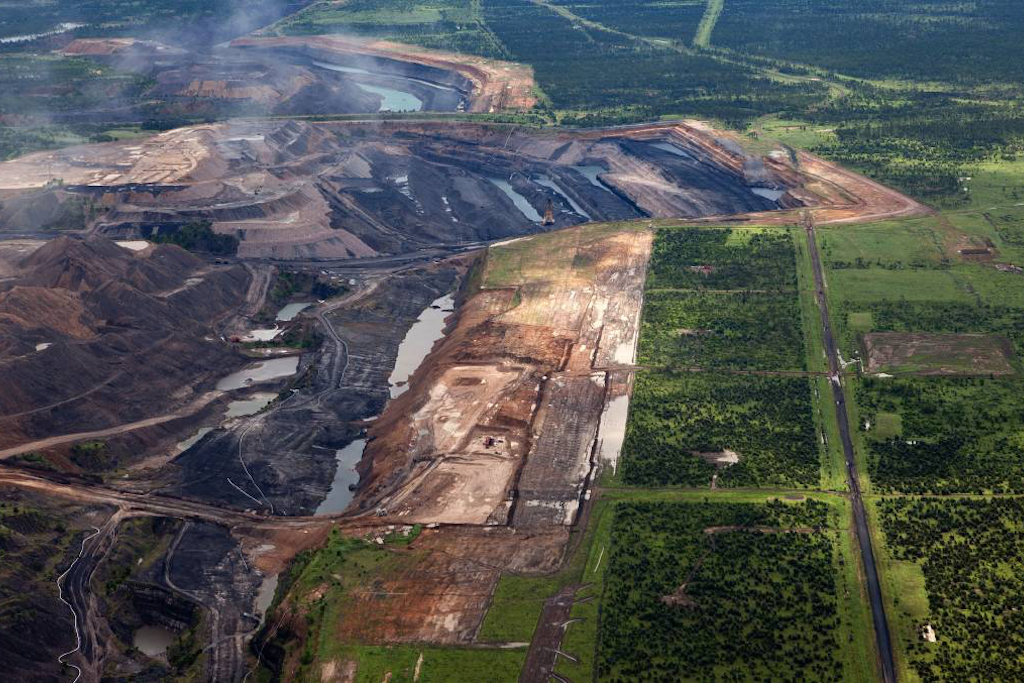The Senate Just Sold Out Indigenous Land Rights To Help Adani
Malcolm Turnbull just made good on his promise.

If there was ever a more blatant example of coal’s influence over politics, this is it: both the Coalition and Labor have rushed changes to the Native Title Act through the Senate, with the explicit intention of “fixing” the laws hindering Adani’s construction of the Carmichael coal mine.
Earlier this year, a ruling in a Western Australia court invalidated Indigenous Land Use Agreements (ILUAs) not signed by all registered native title claimants. Today, that decision has been overruled. Amendments to the act now mean companies such as Adani will only require agreement from a majority of members to go ahead with mines.
With traditional owners from the Galilee Basin, the Wangan and Jagalingou Council, currently pursuing four separate legal actions against Adani in the Queensland Federal Court, Turnbull promised to “fix” the native title laws holding up Adani’s coal mine. Not coincidentally, Nationals Senator Ian MacDonald has previously called the changes “The Adani Bill”.
Here's Coalition senator Ian MacDonald calling Native Title changes "The Adani bill" in May pic.twitter.com/Nqeb1s4gTz
— Rob Stott (@Rob_Stott) June 13, 2017
Labor has today reversed their previous decision not to support the bill, meaning the amendments have passed the Senate with the only opposition coming from the Greens. “This has got nothing to do with native title, and everything to do with getting up a massively polluting mega coal mine…. that is going to, over time, kill the Great Barrier Reef,” Greens senator Nick McKim said.
There is some debate about how fair the original unanimous consent rules were to Indigenous groups, with businessman and advocate for First Nations economic empowerment, Nyunggai Warren Mundine, arguing that a majority vote would actually be more representative of native title organisations than the original legislation.
Mundine and academic Marcia Langton have also warned of environmental activists co-opting native land rights in their fight against Adani. It’s a claim that was shot down by Indigenous lawyer Tony McAvoy last week.
Native title rights to negotiate & register agreeements under threat by Green campaigners, throwing native title under a bus https://t.co/tNcCgiJhVD
— Marcia Langton (@marcialangton) June 11, 2017
Likewise, anyone pretending the mine has universal approval from traditional owners is clearly not listening; the elected-spokeswoman of the Wangan and Jagalingou Traditional Owners’ Council, Murrawah Johnson, has been an outspoken critic of the mine since 2014 and has refused to sign the ILUA.
She also accused Adani of paying at least 220 people of the 295 in attendance at a Wangan and Jagalingou land claim meeting in April 2016 — a claim that is currently being pursued in court.
Brandis says he's never heard that Adani bussed in people to vote on an ILUA – That claim is part of a federal court challenge right now
— Rob Stott (@Rob_Stott) June 14, 2017
Senior spokesman for the council, Adrian Burragubba, has argued that the majority of Wangan and Jagalingou people have not given consent to the mine nor were they properly consulted on the changes, and Johnson has argued that today’s decision is in fact an abandonment of First Nation rights.
“Settling native title amendments has become synonymous with looking after Adani’s interests, not about good lawmaking for Indigenous people,” Johnson said. “Adani want the major parties to enable them to take away our rights to say no, to mount legal challenges and resist their destruction of our lands and waters.”
Edit:
"@nyunggai IS THE NEW FACE OF COLONIAL OPPRESSION"
But he comes in a long line of many. https://t.co/5vhPpSuxe7— MurrawahMaroochy (@murrawah) April 17, 2017
Whichever ILUA system is more fair, the issue is blatantly not why the government made this decision. Our Prime Minister quite literally promised Adani he would “fix” Australian native title law. That certainly seems like a decision made with a coal company in mind, rather than any First Nations group, or the Wangan and Jagalingou people.
And now, thanks to our flaccid opposition, Turnbull has made good on his word.


